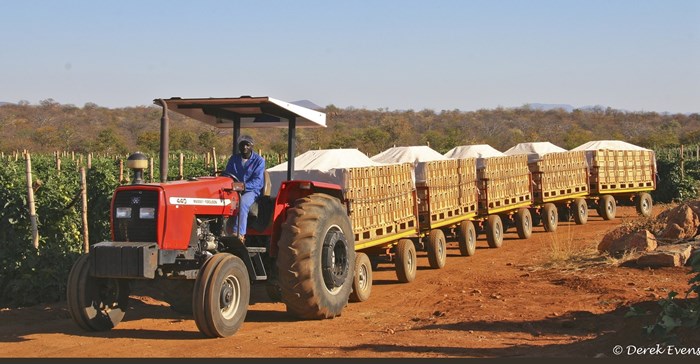ZZ2 has been a major family-owned farming enterprise in South Africa since the mid-20th century and now produce above 45% of the locally marketed tomatoes, about 10% of Avocados while also being a player in Medjool dates, apples, pears, beef and onions.

Provided by ZZ2
Since the turn of the century the company had to adapt to (and often pre-empt) major changes in the agricultural landscape - locally and internationally. These may be summarized as:
• Diminishing availability and rising cost of the major farming without corresponding real price increases of produce in the short and medium term.
• Increased demands for food safety and security, social responsibility and environmental sustainability.
• Rapid advances in technology which create opportunities for those that can adapt and afford it and threats to those that cannot.
• Mobile farming expertise which tends to migrate to the most suitable climates and environment for specific crops, rather than making the best of traditionally owned land.
Our reactions to these trends are in some respects specific to our own situation, but in many ways constitute generic trends in agriculture as a whole namely: Systems thinking; Intensification; "Natuurboerdery" (Nature farming), Marketing and Ethical Norms.

Provided by ZZ2
Systems thinking:
Strategising our operations within the logic of open system laws opened our eyes to the many contexts which have to determine decisions if they are to be sustainable. We realised that the "final cause" or aim of our enterprise is not only to maintain our own system but to make this system indispensable and desirable to the larger systems (social, environmental) into which it is embedded and on which it is totally dependent.
The increasing complexity of a modern farming enterprise with its scores of different specialities becomes impossible to manage in a top-down centralist way. It has to move towards the open- or living system approach of synergistic, mutually regulating subsystems with a clear common goal as guiding principle. Optimising internal communications are key to the application of the open system approach.
The trend towards systems thinking is widespread, mainly driven by compatible IT, which ensures that internal systems "talk to each other". This, however, can still manifest itself as "closed system" in the absence of systematic integration of all elements of the system i.e. final cause, efficient cause, formal cause and material cause.¹
Intensification:
This strategy addresses the problem of diminishing resources and countering it with opportunities offered by new technology. For example, evolving tomato production from open land flood irrigation to intensive net house drip irrigation, with production increases of 300%, water consumption decrease of 80% and labour cost decrease of 25% by optimising technology, cultivars and practices. These intensifications require large initial outlays, but a business plan will show that they are not only eventually profitable but indeed essential for long-term survival.

Provided by ZZ2
"Natuurboerdery":
This entails farming with (as opposed to against or in spite of) nature while using the best available technology. Switching all our soil conditioning from purely synthetic to natural compost-based and maintaining green belts around our operations, is as much a part of "Natuurboerdery" as is water-saving drip irrigation and land-saving protected cultivation. Natuurboerdery combines the best technology with the increased demands for food safety, decreased environmental impact and sustainability. An important application of "Natuurboerdery" is to only cultivate a crop where natural conditions are optimal for the particular crop.
Marketing:
We strongly believe in keeping ownership (and control over price and responsibility for quality) downstream in the value channel. Therefore, we consistently sell by engaging salespeople remunerated on ad valorem commission basis. As reliable price finders, we are dependent on them for the lowest demand signals and for the peak demand signals with the resultant spot prices typical of a well-integrated and functionally efficient market system. Agriculture will, via this mutualistic system, eventually escape the dangerous price distortions created by various opaque trading channels now in operation - distortions which have been the downfall of many a farming enterprise.
Ethical Norms:
Finally, evolving systems are likely to fail if not underpinned by a high level of internalised ethics. Consequently, we operate under a set of moral and ethical facets which recognise the value, to all stakeholders, of a prudent, temperate, just and fortitudinous value system. This may become a viable alternative to systems which seek to exploit and manipulate.
¹The classic classification of "causa finalis", "causa efficiens", "causa formalis" and causa materialis.





















































